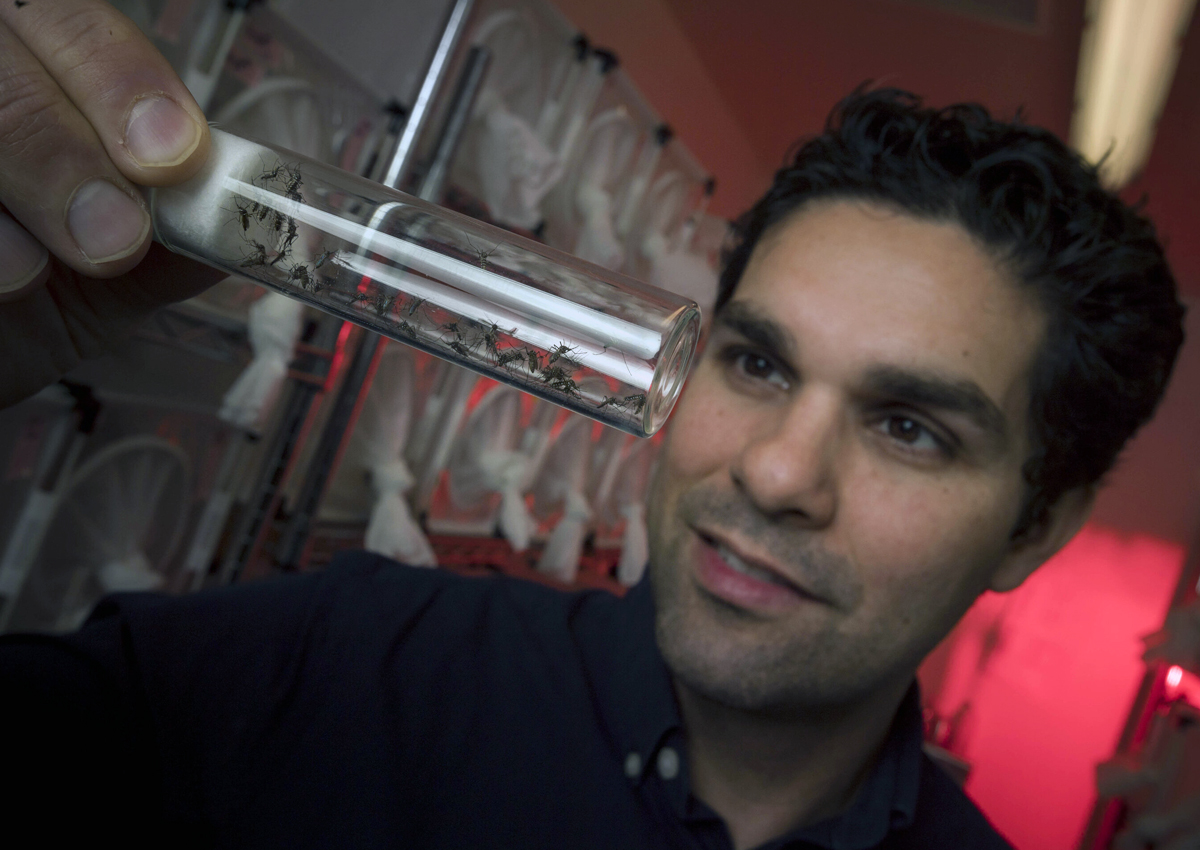
Scientists Engineer Mosquitoes to Repel Dengue Virus
January 22, 2020| |
An international team of scientists led by Associate Professor Omar Akbari's Lab at the University of California San Diego (UC San Diego) has engineered mosquitoes that stop the transmission of the Dengue virus. The UC San Diego Lab worked with colleagues at Vanderbilt University Medical Center in identifying a broad spectrum human antibody for Dengue suppression. The development marks the first engineered approach in mosquitoes that targets the four known types of Dengue, improving upon previous designs that addressed single strains.
The research team then designed the antibody "cargo" to be synthetically expressed in female Aedes aegypti mosquitoes, which spread the Dengue virus. Akbari said that once a female mosquito takes in blood, the antibody is activated and expressed. "The antibody is able to hinder the replication of the virus and prevent its dissemination throughout the mosquito, which then prevents its transmission to humans," he added.
According to the World Health Organization, the Dengue virus threatens millions of people in tropical and sub-tropical climates. No specific treatment is available and measures to stop spreading the virus depend on prevention and control. Akbari said the engineered mosquitoes could easily be paired with a dissemination system, such as a gene drive based on CRISPR-Cas9 technology, capable of spreading the antibody throughout wild disease-transmitting mosquito populations.
For more details, read the news release from UC San Diego.
| |
You might also like:
- Scientists Wipe Out a Mosquito Population Through Genome-editing
- Scientists Successfully Edit Dengue Fever Mosquito Genes
- Pocket K No. 55: Biotech-improved Animals
Biotech Updates is a weekly newsletter of ISAAA, a not-for-profit organization. It is distributed for free to over 22,000 subscribers worldwide to inform them about the key developments in biosciences, especially in biotechnology. Your support will help us in our mission to feed the world with knowledge. You can help by donating as little as $10.
-
See more articles:
-
News from Around the World
- Trending News on Crop Biotech in 2019
- Scientists Engineer Mosquitoes to Repel Dengue Virus
- ISAAA: More than 70 Countries Adopted Biotech Crops since 1996
- VIB Submits Application for New Field Trials of GM Maize
- Enabling Plants to Combat Climate Change by Storing More Carbon Dioxide
- EU Commission Seeks Overhaul of GM Law to Address Gene Editing Regulations
-
Research Highlights
- Overexpression of Pear Gene in Arabidopsis Boosts Abiotic Stress Resistance
- GM Crops with One or More Bt Toxins Do Not Pose Risk for Non-Target Organisms
- Study Shows Genetic Origins of How Plants Evolved from Living in Water to Land
-
Plant
- CRISPR-Cas12a-based DNA Test Used in Disease Detection and GMO Identification
-
Read the latest: - Biotech Updates (December 17, 2025)
- Gene Editing Supplement (December 17, 2025)
- Gene Drive Supplement (February 22, 2023)
-
Subscribe to BU: - Share
- Tweet

